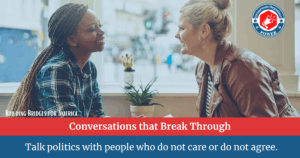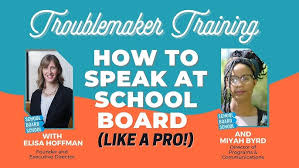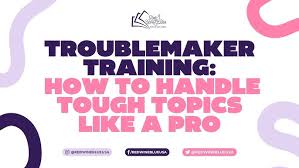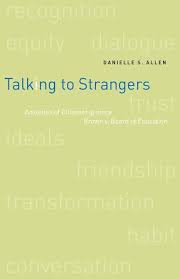Resources: Navigating Uncomfortable Conversations

Political conversations (especially with the people we love and care about) can be among the most challenging conversations we face. They often trigger strong emotions and automatic reactions. This list of documents and videos provides you with strategies for engaging in political conversations constructively rather than divisively. Learn techniques for establishing mutual respect and connecting with common core values with a goal of learning to how to hear each other once again and find common ground. If you’d like to up your messaging game and really connect with people for positive change, these resources are for you!
Actions & 5Calls June 12
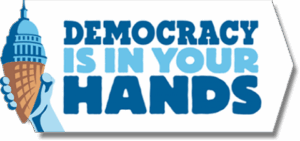
- Of, by and for the people...Today is day 20 of Chippewa Valley Indivisible calling our Representatives and continued actions in LA along with the Big Ugly Recision Bill are our focus. We're asking all of you to again make calls on two topics today. Click today's topics below to learn more and make those calls!
— Condemn Trump’s Use of National Guard and Military Against Americans
— Oppose Funding Cuts to NPR and PBS - Marines on the streets of LA!
- Millions of us will lose coverage.
- The Troops Are In Our Streets - Read more here!!
- Hearings are being held on the Knowles-Nelson Stewardship Program today. Tell committee member to Strengthen Assembly Bill 315 here!
- New to 5Calls? Here's a 5Calls Video Tutorial. More questions? Read the 5Calls FAQ.
Pop the Disinformation Bubble
Video & Handouts By: Building Bridges for America
How can anyone believe this stuff?!? This session provides you with media literacy and empathetic understanding so you can effectively break through.
https://www.buildingbridgesforamerica.com/courses/pop-the-disinformation-bubble
Say This, Not That
Video & Handouts By: Building Bridges for America
Democrats must break their ineffective messaging habits. This session lays the foundation for better messaging and communications.
https://www.buildingbridgesforamerica.com/courses/say-this-not-that
Conversations That Break Through
Video & Handouts By: Building Bridges for America
Learn to understand people who may disagree or not care and build your confidence to talk directly with voters when canvassing or on the phone.
https://www.buildingbridgesforamerica.com/courses/conversations-that-break-through
How to Speak at a School Board Meeting (Like a Pro!)
By Video By: Red, Wine & Blue
The time is always right to Speak up and make an impact in your community!
How to Handle Tough Topics Like a Pro
By Video By: Red, Wine & Blue
In order to defeat extremism in our communities, we need to be able to effectively talk to our friends about tough topics. Want a little help having effective and persuasive conversations? We got you! Join us to hear from Jess McIntosh, a communication strategist, CNN commentator and former host of Signal Boost. She can help you with tips and advice on what to say (and what not to say) and how to connect with others.
Cult College
YouTube Channel By: @CultCollege
The word cult can feel extreme, but please don’t get stuck there. The person leading this channel was in a cult herself and has helped others break out. Whether the person you love is in a cult, has been brainwashed by propaganda, or simply fell for lies, the strategies in these videos will help you break through to talk to the human inside.
The Art of a One-on-One: How to Build Relationships That Build Power
Article By: Indivisible
How to build relationships that build power.
Why You Should Talk to People You Disagree With About Politics
Article By: Rachel Wahl
In a recent piece published in The Conversation, Associate Professor Rachel Wahl writes about the value in talking across the political divide.
https://education.virginia.edu/news-stories/why-you-should-talk-people-you-disagree-about-politics
“If You Say You Believe This, Then Why Did You Vote Like That?”: Reasoning as Questioning in Dialogue Educational Theory
Research Article By: Rachel Wahl
This article draws on the philosophical work on dialogic rationality offered by Charles Taylor as well as qualitative studies of dialogues between politically opposed college students to argue that these conversations succeed as tools of democracy precisely because they fail as interventions. That is, the democratic strength of such dialogue is the way in which it is unreliable as a means of producing particular outcomes. Students whose political views eventually shifted partly in response to dialogue understood this not as a process of changing their commitments, but rather of finding a better expression for the commitments they already held. But the interviews show, too, just how rare it is for such shifts to occur at all, at least for these students in a period of political polarization and mutual distrust. The interviews suggest as well that the appeal to already shared ground is not the whole story of what prompts people to change their minds in these kinds of conversations. Rather the asking of direct but respectful questions was a crucial ingredient. Finally, dialogue did not independently cause the most profound changes in political views. Instead, it was the direction of students’ lives that over time shifted their outlook. Their dialogue experience then gained meaning in retrospect, as the beginning of a process of self-questioning that was brought to fruition only later, as a first time that they had heard alternative possibilities for how value commitments can be expressed through politics.
Talking to Strangers: Anxieties of Citizenship since Brown v. Board of Education
Book By: Danielle Allen
“Don’t talk to strangers” is the advice long given to children by parents of all classes and races. Today it has blossomed into a fundamental precept of civic education, reflecting interracial distrust, personal and political alienation, and a profound suspicion of others. In this powerful and eloquent essay, Danielle Allen, a 2002 MacArthur Fellow, takes this maxim back to Little Rock, rooting out the seeds of distrust to replace them with “a citizenship of political friendship.” Returning to the landmark Brown v. Board of Education decision of 1954 and to the famous photograph of Elizabeth Eckford, one of the Little Rock Nine, being cursed by fellow “citizen” Hazel Bryan, Allen argues that we have yet to complete the transition to political friendship that this moment offered. By combining brief readings of philosophers and political theorists with personal reflections on race politics in Chicago, Allen proposes strikingly practical techniques of citizenship. These tools of political friendship, Allen contends, can help us become more trustworthy to others and overcome the fossilized distrust among us. Sacrifice is the key concept that bridges citizenship and trust, according to Allen. She uncovers the ordinary, daily sacrifices citizens make to keep democracy working—and offers methods for recognizing and reciprocating those sacrifices. Trenchant, incisive, and ultimately hopeful, Talking to Strangers is nothing less than a manifesto for a revitalized democratic citizenry.
https://press.uchicago.edu/ucp/books/book/chicago/T/bo3636037.html



